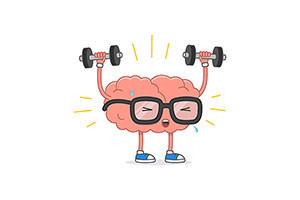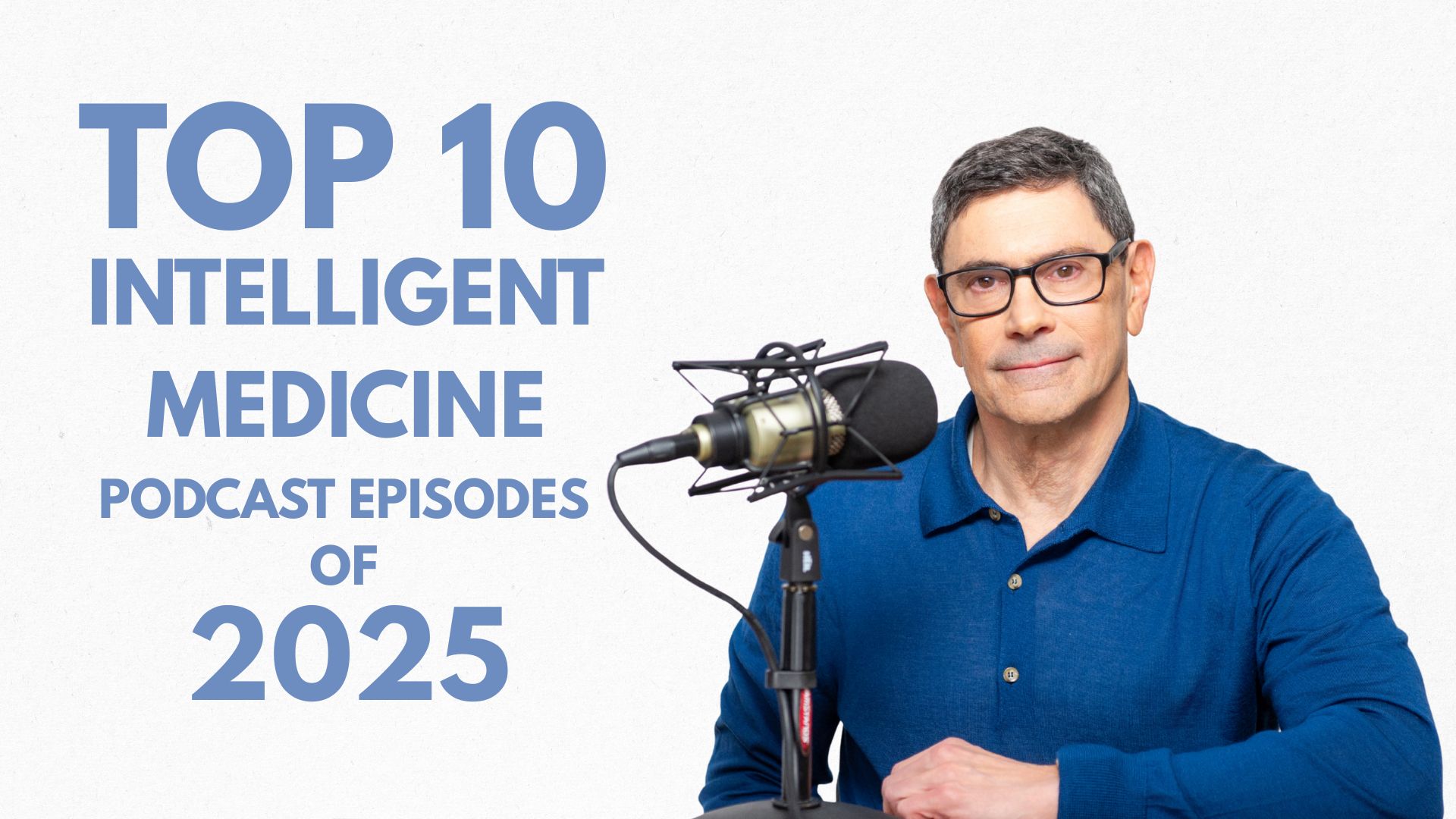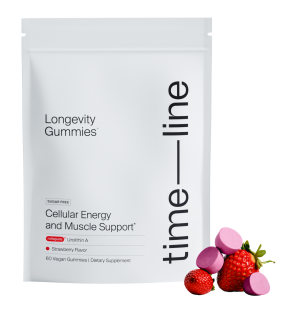What does it mean to have a healthy brain?
It means having a brain that is readily capable of performing all of it’s vital functions. This includes basic functions, like regulating the involuntary functions of the autonomic nervous system, and higher-level functions, such as facilitating cognition and decision-making, and coordinating fine and gross motor skills. While the brain is necessarily an incredibly complex organ, the process of neuroplasticity, which describes the brain’s ability to undergo physical and chemical changes in response to stimuli, affords us a significant degree of control over the health of our brain. In other words, the lifestyle choices we make today have a very real impact on our brain’s current and future health; whether that impact is positive or negative depends on how we live our lives.
As stated above, neuroplasticity can work for or against you. While the natural process of aging more or less handles the “working against you” side of that equation, it is completely within our abilities to harness the power of neuroplasticity to maintain or improve overall brain health. Taking an active role in improving the health of the brain can help fortify the body from some of the most debilitating chronic illnesses we face — the likes of Alzheimer’s, dementia, Parkinson’s, and multiple sclerosis. Fortunately, science has shined a light on numerous factors that have the potential to mitigate the effects of aging and improve overall brain health. To that end, I wanted to highlight six of the most effective ways you can maximize your brain’s potential.
1. Exercise
Exercise is the closest thing modern science has found to a wonder drug. Regular aerobic exercise can help people maintain a healthy weight, improve mood and energy levels, and manage chronic disease risk factors like high blood pressure. As I have noted before, exercise has even been shown to have an impact at the genetic level, by activating the gene profiles responsible for creating brain-derived neurotrophic factor (BDNF). In a 2013 study published in the Journal of the American Medical Association, increased levels of BDNF were shown to stimulate brain cell growth and lower the risk of developing devastating neurological diseases like dementia and Alzheimer’s. Even if the brain is already battling a chronic condition, exercise has been shown to correlate with positive outcomes and increased functional ability in Alzheimer’s and dementia. Clearly, sweating regularly is good for the mind, body, and soul! Just be sure to check with your doctor prior to beginning a new exercise regimen.
2. Increase daily intake of antioxidants, healthy fats, and foods that fight inflammation
Second to exercise, the most important lifestyle factor in determining overall brain health is diet. The food you eat has the power to drastically improve brain health specifically, and your overall health in general. Conversely, if you do not pay attention to what you eat, it can be very difficult to maintain or improve brain health. On the whole, limiting sugar and carbohydrate intake while maximizing intake of healthy fats and fiber can help reduce inflammation and improve overall health. Additionally, increasing the intake of foods rich in antioxidants and anti-inflammatory compounds can help maximize your brain’s potential. Examples of these foods include above-ground leafy vegetables, olive and coconut oils, blueberries, avocados, and, best of all, dark chocolate.
3. Nurture your gut bacteria
I have long asserted that chronic inflammation underpins many of the most prevalent chronic diseases, including Alzheimer’s, multiple sclerosis and dementia. Inflammation is understood to be a systemic response by the immune system to perceived foreign invaders in the body, but to a large extent scientists are still sorting out the mechanisms and impact of inflammation. The Journal of Neuroinflammation recently published a study that, for the first time, linked inflammation in the gut, specifically from inflammatory bowel disease, to damage in the brain. While this specific study relied on laboratory mice and so its conclusions cannot be directly extended to humans, a recent study conducted at King’s College London presents further compelling evidence for the critical role of inflammation in determining brain health. This study, which used human brain cells to gauge the impact of a common inflammatory protein on the brain, offers the first clinical evidence of systemic inflammation’s ability to undermine brain health by halting the production of new brain cells and increasing the rate of decline for existing brain cells.
4. Engage your brain
There’s an old adage, “use it or lose it,” which is very much applicable to improving brain health. Like physical fitness, maximizing mental fitness, or the ability of the brain to function at a high level, requires effort, but is easily achievable when you arm yourself with the appropriate knowledge and experience. If you do not engage your brain through “novelty” exercises like learning, playing, or trying new things, you cannot possibly expect to maximize your brain’s potential. Numerous studies have shown that efforts to improve mental fitness in aging adults have been effective at increasing overall cognitive abilities. Trying your hand at new things, reading more, and challenging yourself mentally through activities like crossword puzzles and memory games are all effective ways to improve mental fitness and overall brain health.
5. Spend time with your friends
Human beings crave connection and a sense of community. As such, our brains are wired to thrive on the stimulation provided by socializing with close friends and family. In a longitudinal study published by the American Journal of Public Health, larger social networks were associated with a decreased risk of developing dementia late in life. Another study published in the Lancet returned similar results; longitudinal data suggests that socially active individuals appear to experience a lower incidence of dementia and Alzheimer’s disease. While the undoubtedly complex mechanisms and pathways through which strong social networks impact brain health are still being understood, the aforementioned studies suggest that nurturing strong interpersonal relationships can make a big impact on your brain health.
6. Get your eight hours
Everyone knows that a bad night of sleep can ruin your day, but did you know that sustained poor sleep hygiene correlates with an increased risk of developing coronary artery disease and Alzheimer’s? Or that sleep apnea is associated with worsening seizures in adults with epilepsy? There is even evidence to suggest that poor sleep patterns could serve as an early marker of neurodegenerative conditions like dementia. Therefore, it is critically important that you set yourself up for success by getting adequate, restful sleep every night. Taking steps like cutting out coffee after noon, reducing night-time light exposure, and shifting exercise to the morning will all go a long way towards ensuring you experience deep, restorative sleep at night.
The seeds of some of the most devastating diseases we face are often planted years before symptoms emerge. While we currently cannot test for these diseases in their nascent states, you can take an active role in improving brain health and fortifying your body against these conditions today by making the right lifestyle choices. If you ensure what you eat and what you do every day is aligned with maximizing brain health, you can help set yourself up for long-term health, wellness and fulfillment.
Want a deeper dive into how the ketogenic diet supports brain health? Download My Ketogenic Diet eBook.
This free resource explores the benefits of ketosis and includes 3 interviews with leading ketosis experts.
In the ebook you’ll find:
- A new study that validates a ketogenic diet for epilepsy treatment in adults
- Why I use a ketogenic diet in treating ALS
- How to keep yourself in ketosis
- Ketogenic diet benefits
- Exposing the secret of healthy fats
- Ketosis and Parkinson’s: Therapeutic potential of the Ketogenic diet
This article originally appeared on Dr. Perlmutter’s website.







